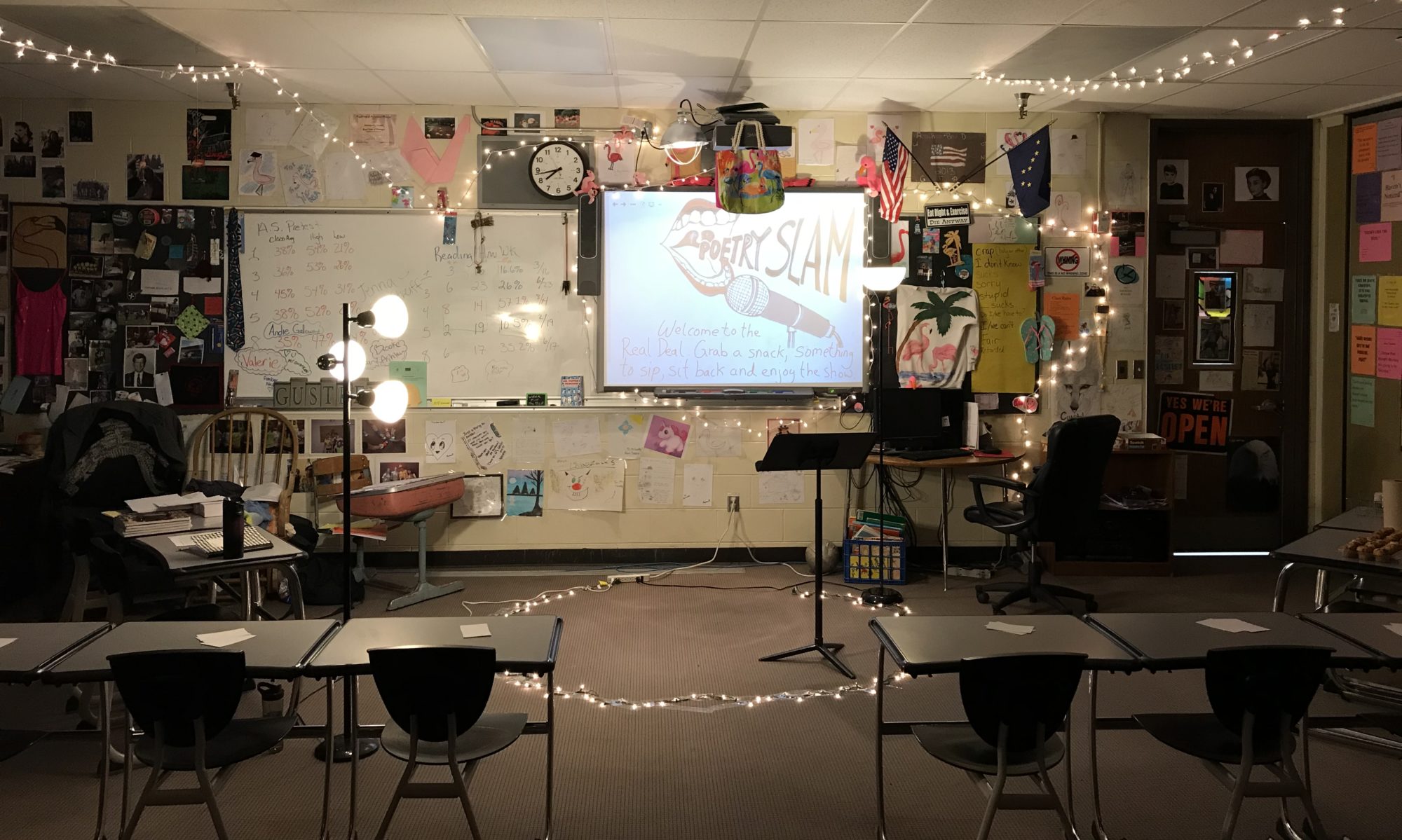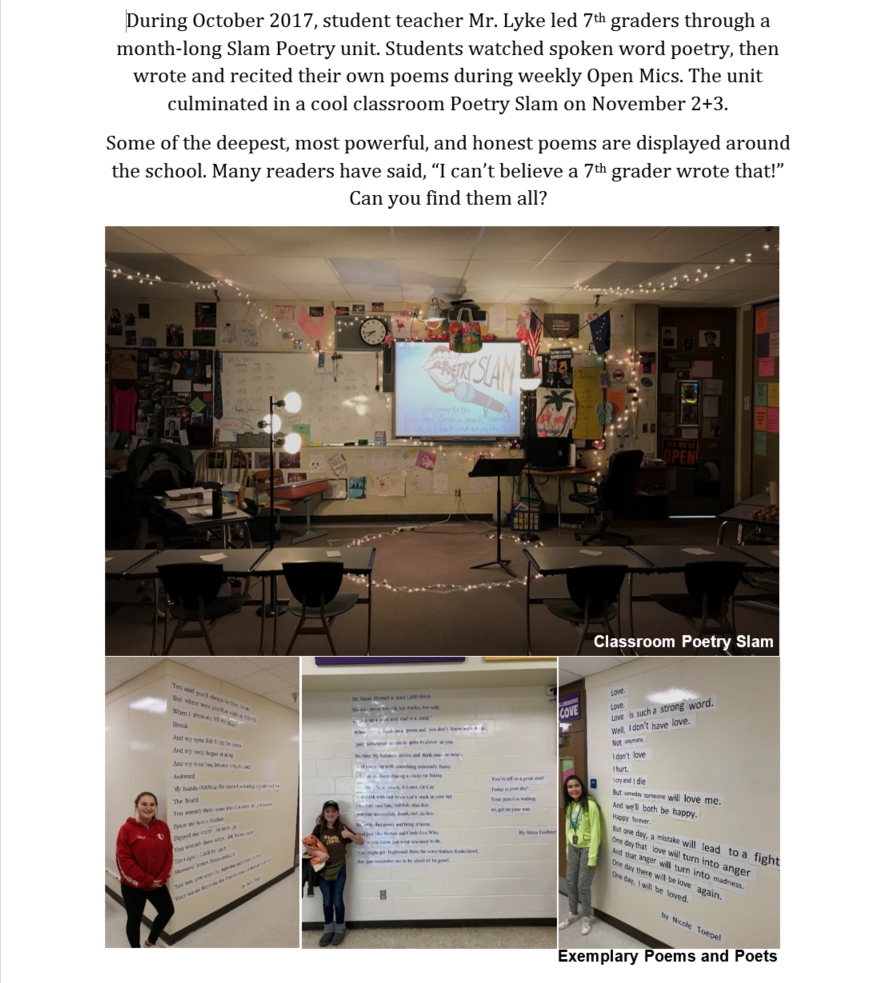4 UNIT
Reading is more than decoding some inky squiggles on a page. It is more than reciting text quickly and accurately. To say that you “read” something is to say that you created personal meaning from the writing. I agree with Kenneth Goodman who said that transactions between the mind and the text are modified by the social, cultural, and personal experiences of the reader (Goodman, 1967, 1994). In the spirit of honoring personal experience and meaning, I’ve included a middle school Slam Poetry unit to demonstrate my knowledge of language arts content.
Decoding, phonemic, and grammar skills are helpful to readers. These cueing systems work in beautiful synchronicity to transform words into thoughts. Teaching these support skills must not replace the most important practice a student needs: reading relevant and interesting stories.
Slam poems are honest stories about the intense emotions of love, death, family and tragedy. They can be political or comical, sweet or sassy. The best poems are surprising and personal, hooking the audience’s interest within seconds. Students enjoy writing and reciting slam poetry to their classmates and can become addicted to the adrenaline rush of performance.
Using a gradual release of responsibility (Pearson & Gallagher, 1983), my slam poetry unit was frontloaded with teaching the procedures for the writing process, revision, and rehearsal. After some practice, I stepped back into a facilitator/coach role with my students. I won’t claim that this approach is best practice, it simply matched my strengths as an educator.
The strength of my unit is that it acknowledged what students find to be relevant. It created a learning environment that rewards creativity and celebrates literacy. It gave feedback gently: student-directed workshop circles supported revision while personalized mini-lessons inspired (rather than demanded) more sophisticated writing.
My unit and my philosophy are aimed toward inspiring students to love reading as much as I do. Nagy, Herman, & Anderson (1985) agree that the “most effective way to produce large-scale vocabulary growth is through… Reading.” Slam Poetry helped achieve that goal by creating a valuable social experience for readers and writers. It rewarded readers and writers in a way that many students had never experienced before. I can’t recommend it highly enough for intermediate and middle school language arts classrooms.
References
Goodman, K. S. (1967). Reading: A psycholinguistic guessing game. Literacy Research and Instruction, 6(4), 126-135.
Nagy, W. E., Herman, P. A., & Anderson, R. C. (1985). Learning words from context. Reading research quarterly, 233-253.
Pearson, P. D., & Gallagher, M. C. (1983). The instruction of reading comprehension. Contemporary educational psychology, 8(3), 317-344.

